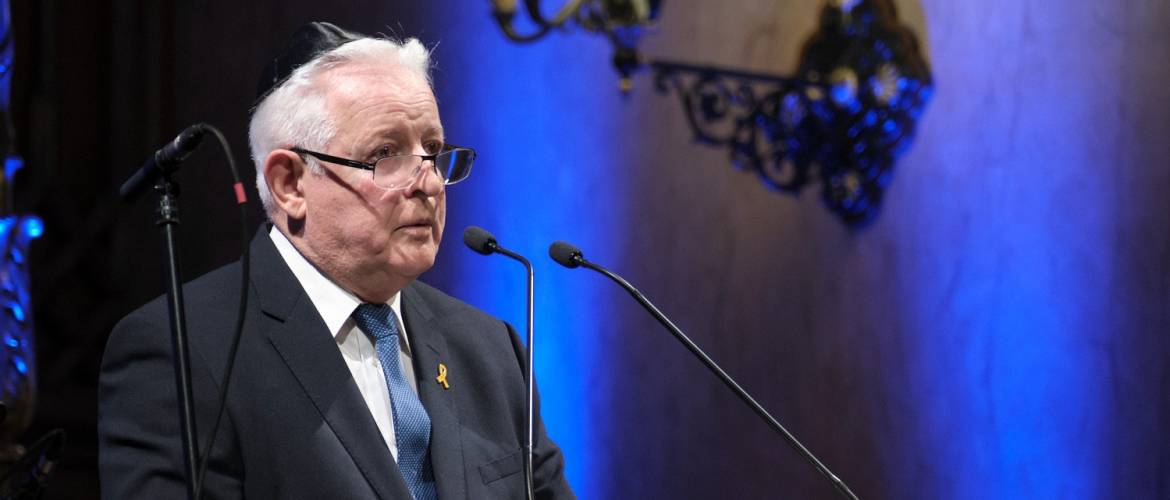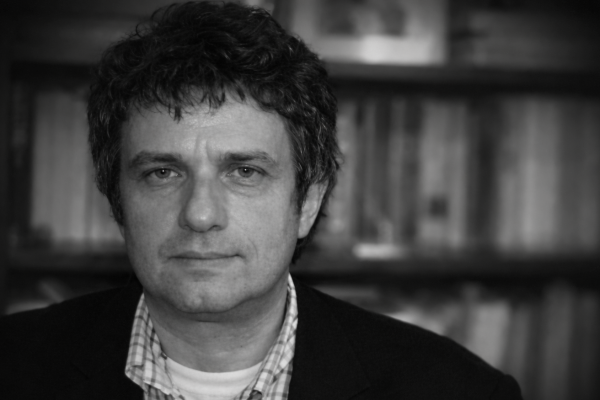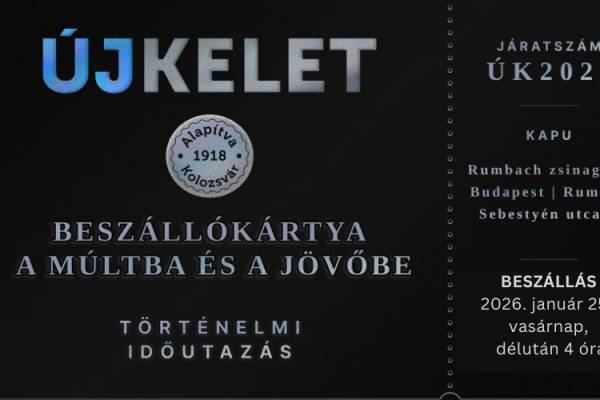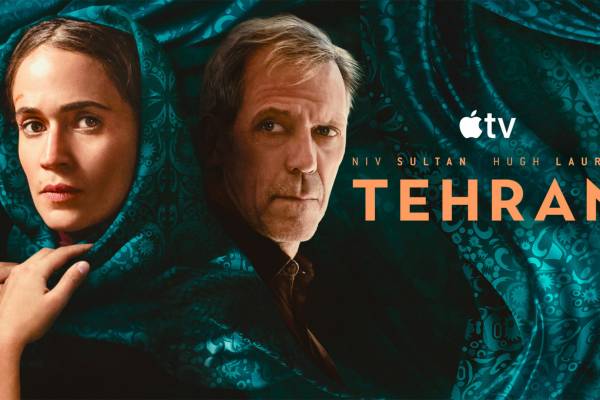"There are things that cannot be forgiven, amended, or forgotten. The
Holocaust is one of these. Let's remember the victims, but not just their annihilation,
rather their lives, as they were, loving parents and loving children" said Dr.
Andor Grósz, the president of Mazsihisz, at the event held in the Dohany Street
synagogue on 3 April.
On the occasion of the 80th anniversary of the Holocaust, Mazsihisz devotes
this year to remembrance this year, with the opening event in the synagogue on
Dohany Street. After the singing of the Hungarian and Israeli national anthems,
dr. Andor Grósz, the president of Mazsihisz, greeting the participants, pointed
out that although we mark the eightieth anniversary, it must be said that the Shoah
in Hungary did not begin in 1944.
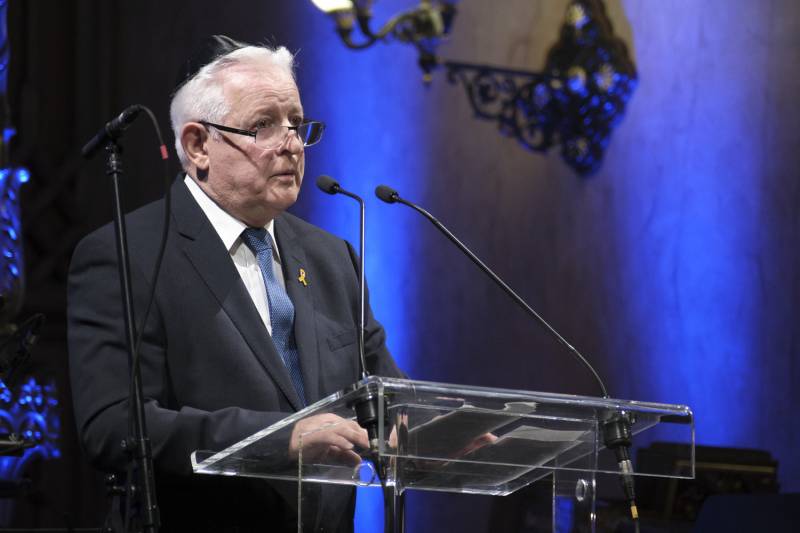
– My father was already in the forced labor service during the German
occupation, and forced labor servicemen were dying on the Eastern Front for
already three years. The tragedy of 1944 was the culmination of what had happened,
the president underlined.
Read the full speech by clicking here
He drew attention to the fact that in the year of remembrance, we should
not only remember the victims as destroyed people, but as they really were in
their lives, as loving parents and loving children.
"God, God, why have you forsaken me?" We have heard this line
in the psalm, and this question has been asked for eighty years: why? – opened
his speech Dr. Róbert Frölich, National Chief Rabbi.
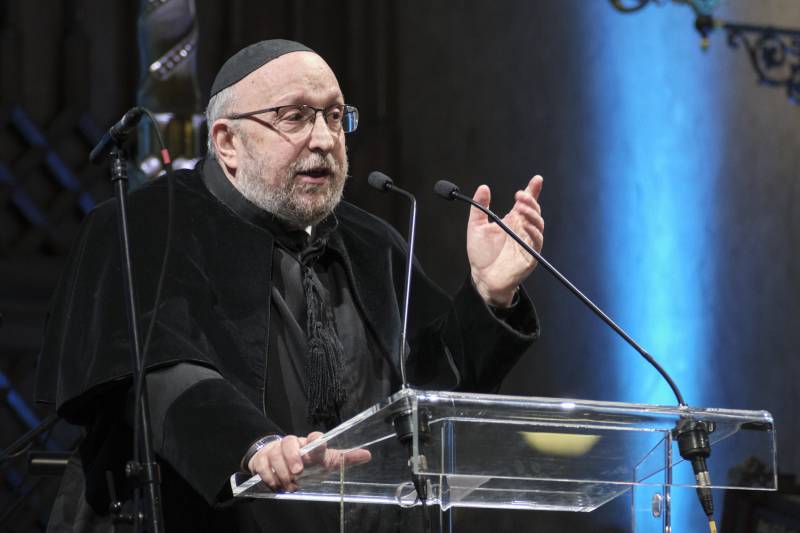
As he explained: in the Book of Esther, which was read a few weeks ago,
during Purim, there is an element of the answer, since in it the evil power
seeking to destroy the Jews already characterizes the Jews as a separate,
non-mingling people. The Jews have their own laws, and they stick to them more
than to their lives, says the evil Haman.
– Quite a few centuries have passed since then, and if we look back at
the sufferings of the Jews, we must see that the Shoah did not begin eighty
years ago, as the centuries that have passed since Haman have laid the
foundation for it – said the National Chief Rabbi.




